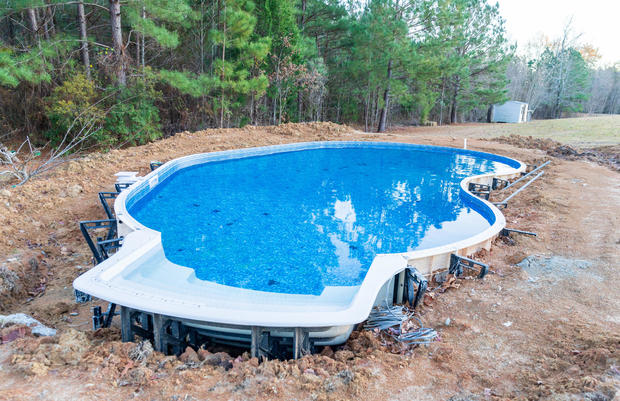Why you should use home equity for summer projects
With Memorial Day having just passed, the unofficial start to summer 2023 has begun. While the summer may bring longer days and warmer weather, it also allows homeowners to take stock of their homes and offers a new opportunity to complete some repairs and renovations. While fixing your backyard or roof in the winter may be challenging, the summer offers a perfect window to complete delayed improvements.
That said, financing these projects could be tricky. Major home improvements could cost thousands of dollars. While the traditional credit alternatives should be explored, homeowners may be better served by tapping into home equity to pay for their planned summer projects. This can primarily be done in two ways: a home equity loan or a home equity line of credit (HELOC).
There are multiple benefits to using home equity in this way, three of which we will explore below. To start, check your home equity loan options here now to see how much you're eligible to borrow.
Why you should use home equity for summer projects
Here are three reasons why you should consider using your home equity to pay for your summer home projects.
It's cheaper than some alternatives
Not all credit options are equal, particularly when it comes to how much you'll have to pay to utilize a specific type. Interest rates on personal loans, for example, are often in the double-digit range (depending on your credit score and other factors). And rates on credit cards are expensive as of late, hovering around the 20% mark in recent months.
However, interest rates on home equity loans and HELOCs are currently at about 8%. And, if you go the home equity loan route, you'll be locked in at that lower rate, regardless of any outside volatility in the larger rate environment. While these rates are a bit higher than they have been in recent years, they're still significantly lower than some other options. Those savings will add up over time, particularly if you're planning on borrowing a substantial amount of money.
Explore home equity loan rates and options here to determine your eligibility.
It's tax-deductible
Home equity loans and HELOCs are a great way to finance home repairs and renovations due to their tax deduction qualifications. If you use either to pay for one of your summer home projects this year, chances are good that you'll be able to deduct the interest you paid when it comes time to file your taxes next spring.
"Interest on home equity loans and lines of credit are deductible only if the borrowed funds are used to buy, build, or substantially improve the taxpayer's home that secures the loan," the IRS explains online. "The loan must be secured by the taxpayer's main home or second home (qualified residence), and meet other requirements.
"Generally, you can deduct the home mortgage interest and points reported to you on Form 1098 on Schedule A (Form 1040), line 8a," the IRS says. "However, any interest showing in box 1 of Form 1098 from a home equity loan, or a line of credit or credit card loan secured by the property, is not deductible if the proceeds were not used to buy, build, or substantially improve a qualified home."
It comes with higher limits
If you apply for a credit card you may be limited by the credit line you're approved for. The same restrictions apply to a personal loan. But home equity loans could potentially provide you with hundreds of thousands of dollars to use as you see fit.
Remember, home equity isn't just calculated by how much of your mortgage balance you've paid down. It's also determined by your current home value. So, if you're living in a part of the country that has seen a dramatic increase in home prices in recent months and years, you could have a substantial amount of money to play with.
How much money? Let's say you initially took out a loan for $500,000 but have since paid down your balance to $350,000. In the interim, your home value has grown to $650,000. In this case, you would have $300,000 in home equity. Most lenders will let you deduct 80% to 85% of the equity you've built up, giving you $240,000 to $255,000 to access in this example.
See how much you could personally borrow here now.
The bottom line
While there are multiple ways to finance a home project this summer, a home equity loan or HELOC may be the best way to do so. These options are generally cheaper than credit cards and personal loans and, when used for eligible home repairs, they can be eligible for an interest tax deduction. They can also give homeowners a greater amount of funding to use than some other alternatives. That all being said, home equity loans and HELOCs use the home in question as collateral, so make sure you have the ability to repay the money borrowed or you could risk losing your home in the process.




